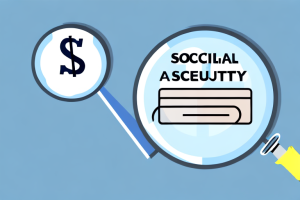Retirement is a significant milestone in life that requires careful planning and consideration. Many individuals approaching retirement age wonder if $1,500 a month is enough to live on comfortably during their golden years. In this article, we will delve into various factors that play a role in determining the adequacy of this budget and offer detailed insights into how to make the most of this amount for a fulfilling retirement.
Calculating Retirement Needs: Factors to Consider
When determining the sufficiency of $1,500 a month for retirement, it’s important to consider several factors. One key element is your desired lifestyle. Are you aiming for a simple, frugal existence or do you want to enjoy a more extravagant retirement? Your lifestyle choices will greatly impact how far your retirement funds can stretch.
Additionally, you should assess your anticipated living expenses, including housing costs, transportation, food, healthcare, and entertainment. It’s crucial to allocate funds accordingly, keeping in mind potential inflation and unexpected expenses that may arise.
Another important factor to consider when calculating retirement needs is the expected duration of your retirement. How long do you anticipate living in retirement? This will affect the amount of savings you will need to accumulate. It’s important to plan for a longer retirement period to ensure you have enough funds to sustain yourself throughout.
Understanding the Cost of Living in Retirement
The cost of living during retirement can vary depending on your location. Urban areas tend to have higher living expenses compared to rural or suburban regions. Consider where you plan to retire and research the average costs of housing, groceries, utilities, and healthcare in that area. This information will help you determine whether $1,500 a month is feasible.
Furthermore, it’s essential to bear in mind that certain costs, such as healthcare and insurance, may increase as you age. It is wise to account for potential medical expenses and premiums when assessing your retirement budget.
Another factor to consider when estimating the cost of living in retirement is the level of inflation. Over time, the prices of goods and services tend to increase due to inflation. It’s important to account for this when planning your retirement budget, as the purchasing power of your savings may decrease over the years.
In addition to everyday living expenses, it’s crucial to think about leisure activities and hobbies that you may want to pursue during retirement. Whether it’s traveling, joining clubs or organizations, or engaging in recreational activities, these pursuits can add to your overall cost of living. Make sure to factor in these potential expenses when creating your retirement budget.
Evaluating Your Personal Financial Situation
Before deciding if $1,500 a month is adequate for retirement, it’s crucial to evaluate your personal financial situation. Take stock of your existing savings, investments, and any additional sources of income you may have, such as a pension or Social Security benefits. Your current financial standing will help determine if this monthly budget is realistic.
Consider consulting with a financial advisor who can provide personalized guidance and assist you in making informed decisions about your retirement plan.
In addition to evaluating your current financial standing, it’s important to consider your future expenses and potential changes in your lifestyle during retirement. Take into account factors such as healthcare costs, inflation, and any desired travel or leisure activities. By thoroughly assessing your financial situation and considering potential future expenses, you can make more accurate decisions about the adequacy of $1,500 a month for retirement.
Creating a Budget for Retirement
A comprehensive budget is vital for successfully managing $1,500 a month during retirement. Start by listing all necessary expenses, such as housing, utilities, groceries, transportation, and healthcare. Allocate funds for discretionary spending, including travel or hobbies, while ensuring you leave room for unexpected costs and emergencies.
By creating a budget and sticking to it, you can gain a clearer understanding of how far $1,500 a month can stretch and make any necessary adjustments to your lifestyle and spending habits.
It is also important to consider inflation when creating a budget for retirement. Over time, the cost of goods and services tends to increase, meaning that $1,500 a month may not have the same purchasing power in the future as it does today. To account for this, it is advisable to factor in an inflation rate when estimating your expenses. This will help ensure that your budget remains realistic and sustainable throughout your retirement years.
Exploring Income Sources in Retirement
Apart from your initial retirement savings, it’s crucial to consider additional income sources. Social Security benefits can provide a significant portion of your retirement income, depending on your work history and age at retirement. Understanding how these benefits factor into your $1,500 budget is essential.
Moreover, explore potential opportunities for supplemental income through part-time work or side hustles. By generating additional revenue streams, you can enhance your financial stability and potentially increase your monthly budget.
Social Security Benefits: How They Affect Your Retirement Income
Social Security benefits can substantially impact your retirement income. The amount you receive depends on your working history, the age at which you start receiving benefits, and various other factors. Familiarize yourself with the Social Security system to understand how these benefits can complement your $1,500 monthly budget.
Consider consulting with a Social Security advisor or using online calculators to estimate your expected benefits and how they align with your retirement needs.
Assessing the Role of Investments in Your Retirement Plan
Investments play a crucial role in many retirement plans. Assess the current state of your investment portfolio and evaluate its potential to provide additional income during retirement. Diversifying your investments can help mitigate risk and potentially boost your retirement funds.
Consulting with a financial advisor can provide you with expert advice on managing your investments while considering your $1,500 monthly budget.
Is $1,500 a Month Realistic for Retirees?
Whether $1,500 a month is realistic for retirees depends on numerous factors, such as your desired lifestyle, location, and existing financial resources. It is crucial to evaluate all aspects of your retirement plan meticulously and determine if this budget can sufficiently cover your needs and goals.
By carefully managing expenses, exploring additional income sources, and making prudent financial decisions, it is possible to make $1,500 a month work for your retirement.
Breaking Down Monthly Expenses in Retirement
Understanding how your $1,500 monthly budget breaks down is essential for effective financial planning. Categorize and analyze your expenses to determine where your money is going and identify areas where you can potentially cut costs or reallocate funds.
Consider keeping detailed records of your expenses to gain a clearer understanding of your spending habits and make necessary adjustments as needed.
Healthcare Costs in Retirement: What to Expect
One significant expense to consider during retirement is healthcare. As we age, the likelihood of requiring medical services increases. Research and gather information about healthcare costs, including insurance premiums, prescriptions, and potential long-term care expenses.
Include healthcare costs in your budget and explore options for Medicare, supplemental insurance, and other healthcare programs to minimize expenses and ensure you can handle any medical needs that may arise.
Strategies for Stretching Your Retirement Dollars
Even with a $1,500 monthly budget, there are numerous strategies you can employ to stretch your retirement dollars further. Consider adopting a frugal mindset, seeking out discounts and deals, and prioritizing your spending. Cutting unnecessary expenses and finding creative ways to save can significantly impact your financial well-being during retirement.
Explore options for downsizing your home, reducing energy consumption, and finding inexpensive yet enjoyable activities that align with your interests and passions.
Finding Affordable Housing Options in Retirement
Housing costs can consume a significant portion of any budget. When retiring on $1,500 a month, it’s crucial to explore affordable housing options. Research areas with lower costs of living, consider downsizing to a smaller home or apartment if appropriate, or explore retirement communities that offer affordable options.
By carefully selecting where and how you live, you can minimize housing expenses and free up more funds for other essentials or quality-of-life experiences.
Supplementing Income with Part-Time Work or Side Hustles
To enhance your monthly budget, consider exploring opportunities for part-time work or side hustles. Many retirees find enjoyment and financial benefits from pursuing supplementary income streams.
Search for flexible employment options that align with your skills and interests. This not only provides additional income but can also keep you engaged and active during retirement.
Managing Debt in Retirement: Tips and Tricks
Carrying debt into retirement can significantly impact your monthly budget. Prioritize reducing or eliminating any outstanding debt before retiring on $1,500 a month. Develop a strategy to pay off debts systematically and consider seeking professional advice if necessary.
By entering retirement debt-free, you will be better positioned to manage your budget successfully and focus on enjoying your golden years.
Exploring Government Assistance Programs for Retirees with Limited Income
If you find that $1,500 a month is not sufficient to cover your retirement needs, explore government assistance programs designed to support individuals with limited income. These programs may provide additional benefits to help ensure your financial security during retirement.
Research eligibility requirements and available programs such as Medicaid, the Supplemental Nutrition Assistance Program (SNAP), or the Low-Income Home Energy Assistance Program (LIHEAP).
The Importance of Emergency Savings in Retirement Planning
Regardless of your monthly budget, having emergency savings is crucial for a secure retirement. Unexpected expenses can arise at any time, such as home repairs, medical bills, or other emergencies.
Strive to build an emergency fund separate from your $1,500 monthly budget. Set aside a portion of your income to accumulate savings that can cover unexpected costs and provide peace of mind.
Strategies for Minimizing Taxes in Retirement
Minimizing tax obligations is an essential aspect of effective retirement planning. Familiarize yourself with tax laws and regulations that apply to retirees and explore strategies to optimize your tax situation.
Consider consulting with a tax professional specializing in retirement planning to ensure you are taking advantage of all applicable deductions and credits.
Adapting Your Lifestyle to Fit Within a $1,500 Monthly Budget
Adapting your lifestyle to fit within a $1,500 monthly budget may require some adjustments and conscious decision-making. Prioritize your spending, seek out cost-saving opportunities, and embrace a frugal mindset.
While $1,500 a month may not allow for luxurious living, it can still provide a fulfilling retirement with careful planning and smart financial choices.
Balancing Frugality and Quality of Life in Retirement
Lastly, it’s crucial to strike a balance between frugality and enjoying a good quality of life during retirement. While it may be necessary to cut back on certain expenses, do not deprive yourself of the experiences and activities that bring you joy.
Allocate funds for leisure activities, hobbies, and socializing, and ensure you find fulfillment in your daily life while making prudent financial decisions.
In conclusion, whether $1,500 a month is enough to retire on ultimately depends on numerous factors, including your desired lifestyle, location, and financial situation. By thoroughly evaluating your retirement needs, planning diligently, exploring additional income sources, and adopting a frugal mindset, it is possible to make $1,500 a month work for a fulfilling retirement.



